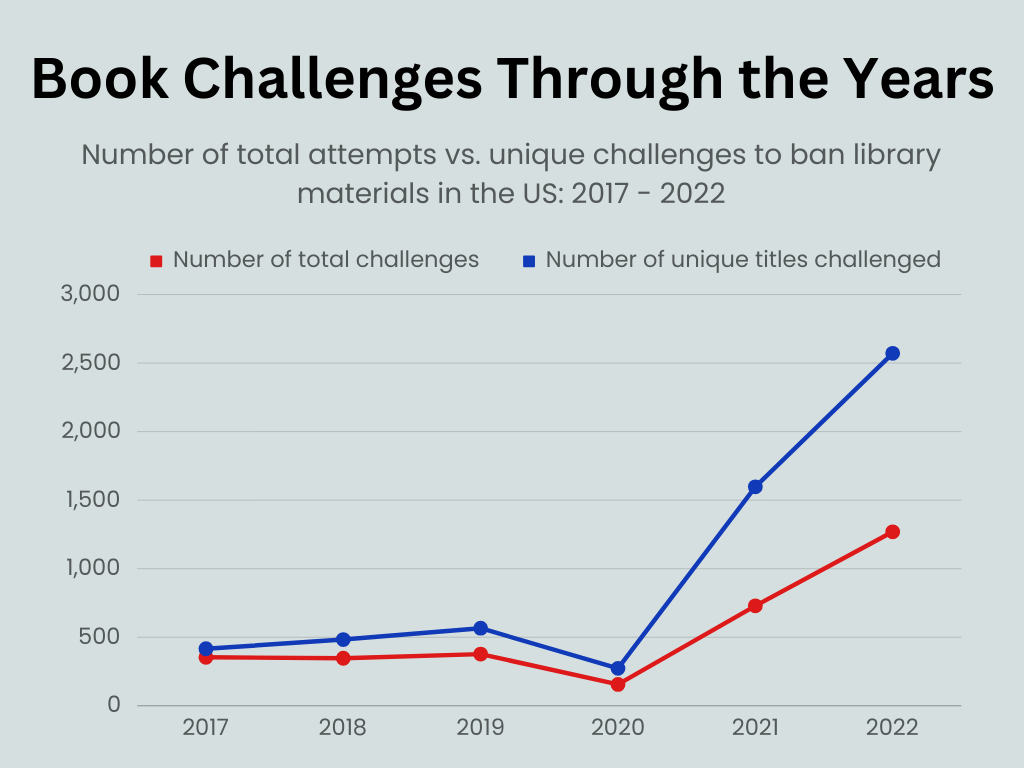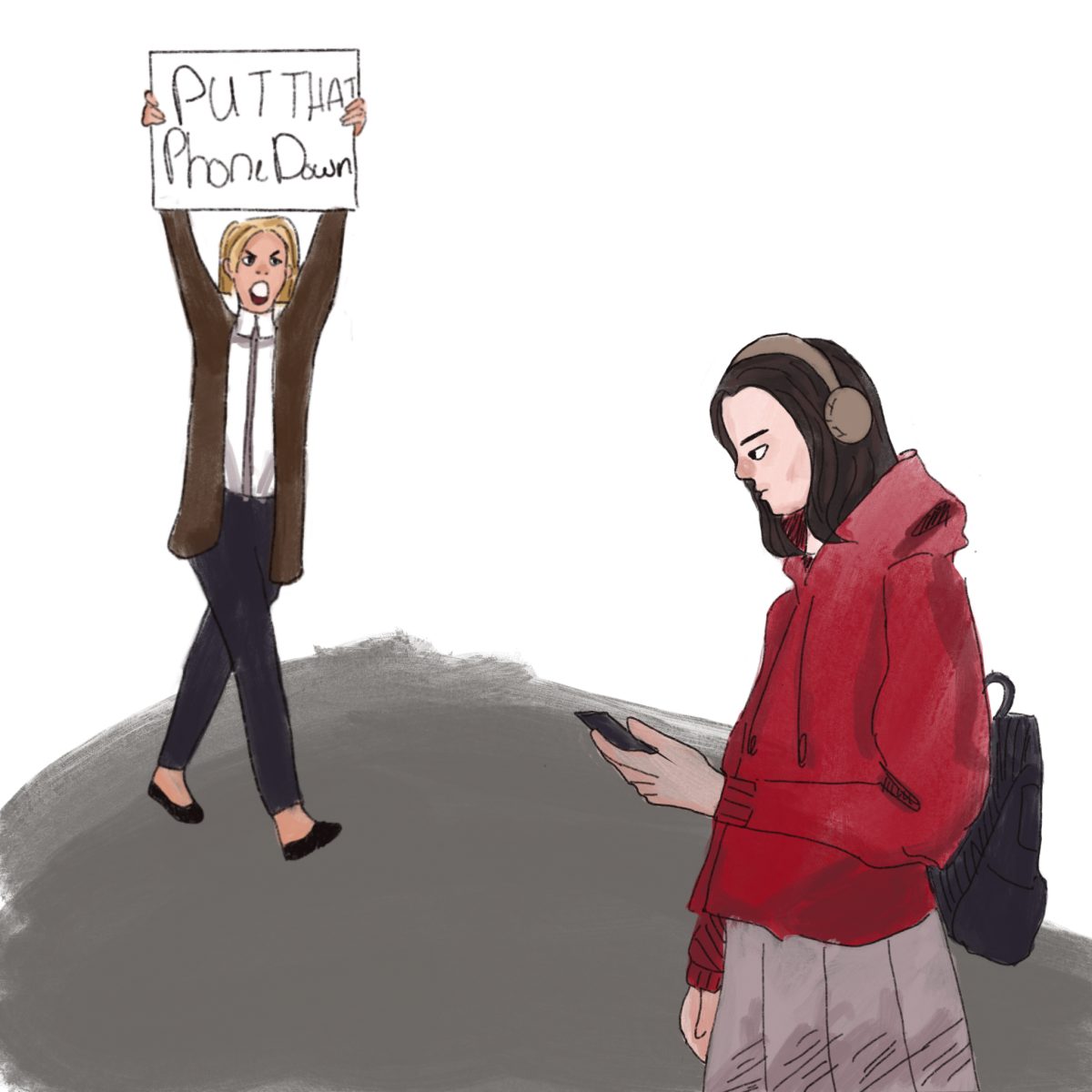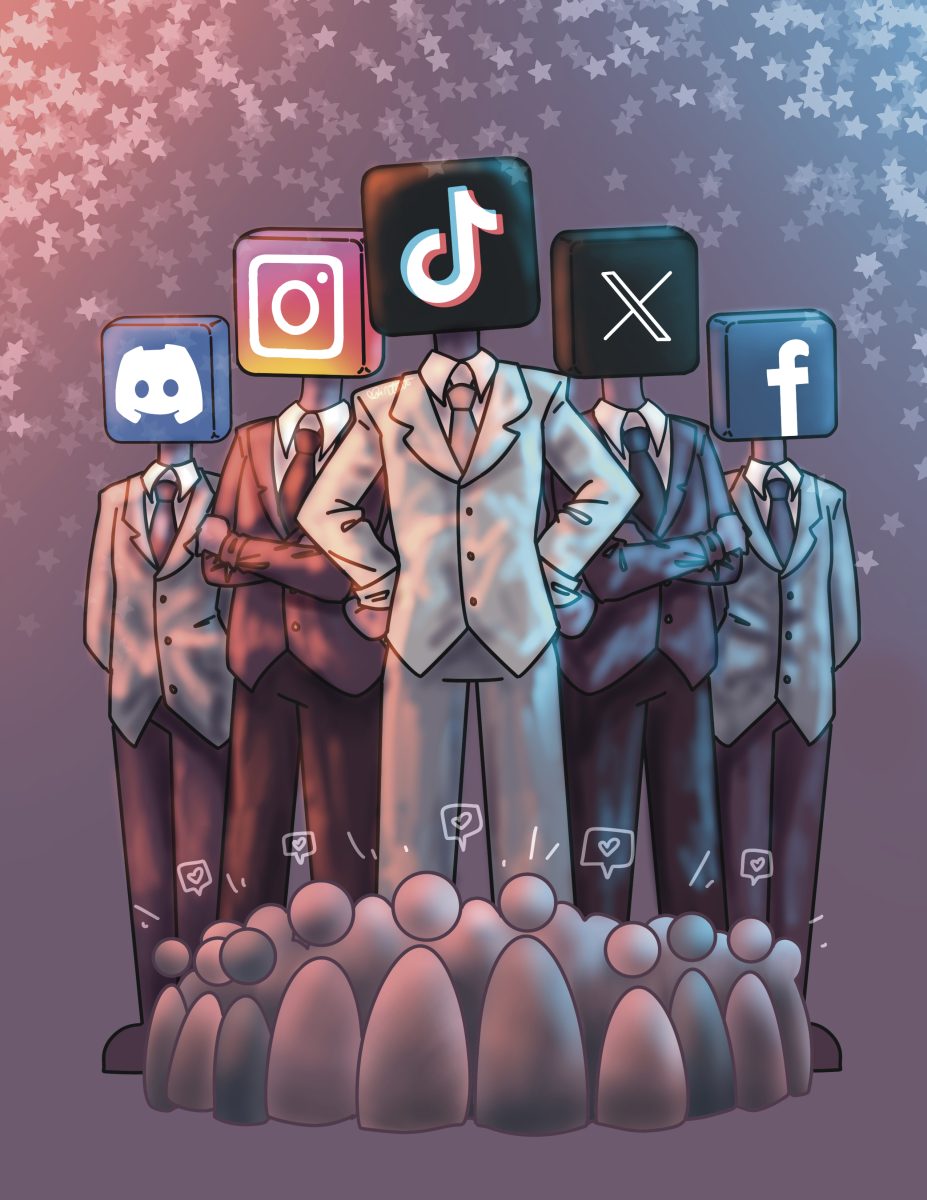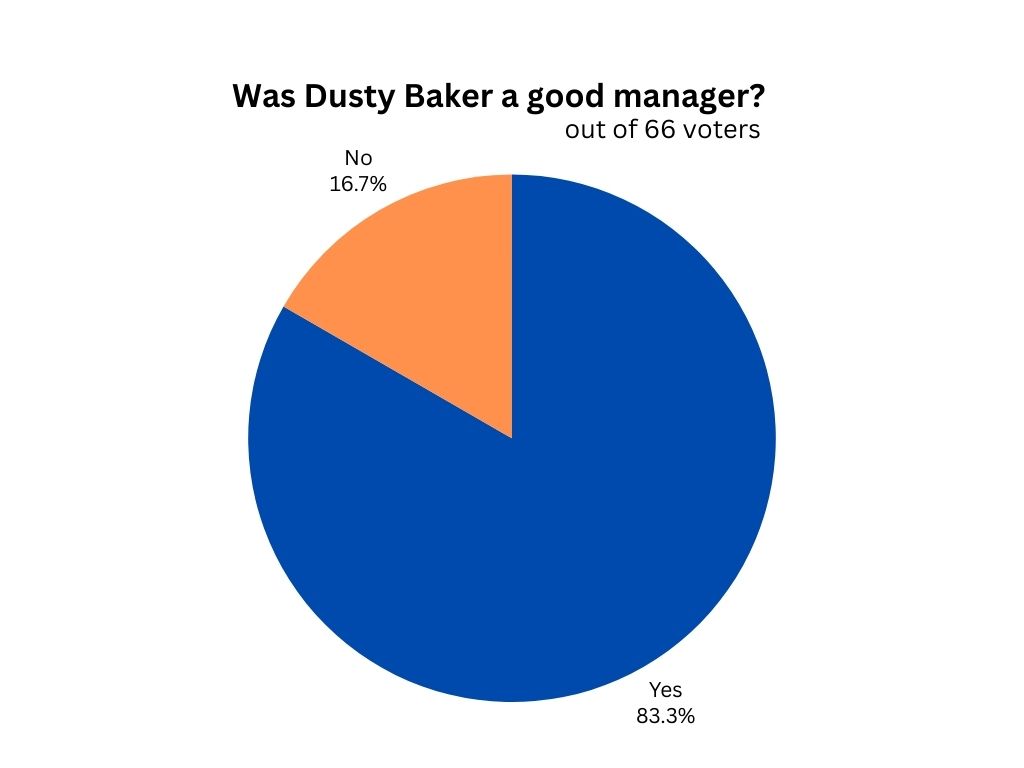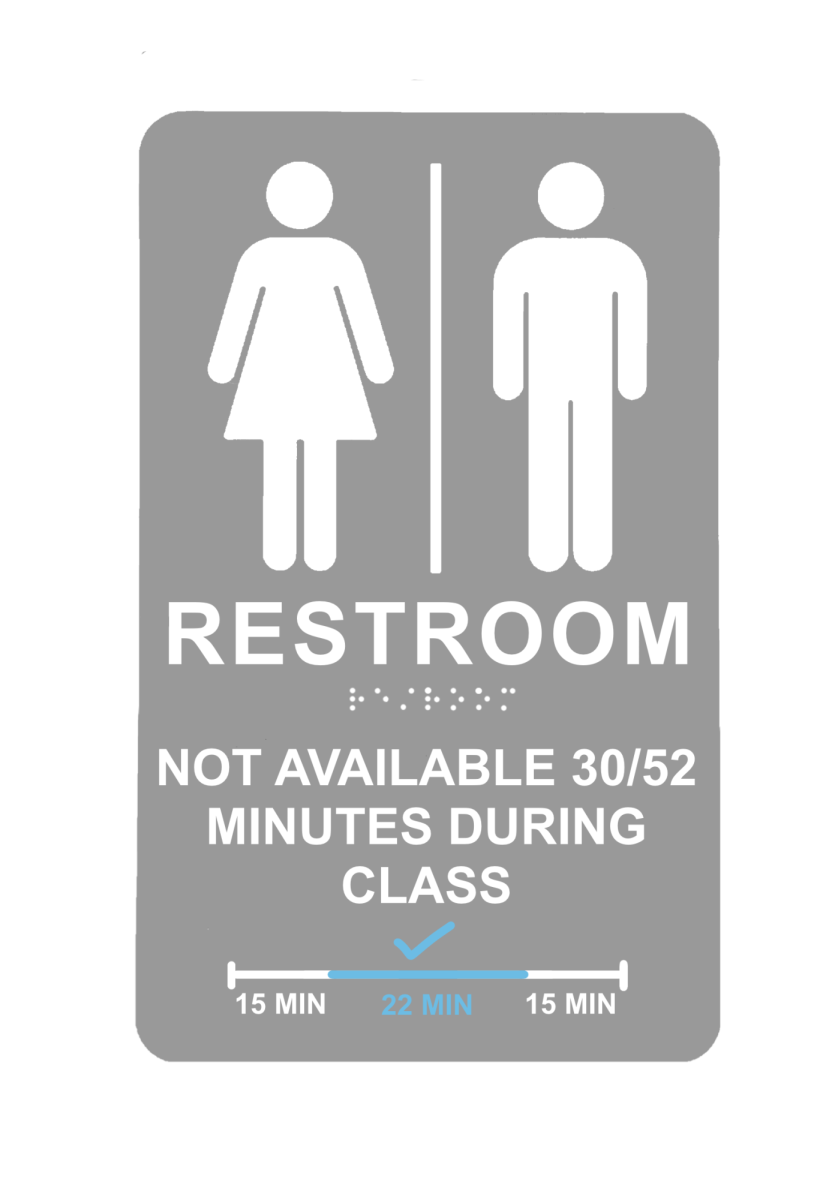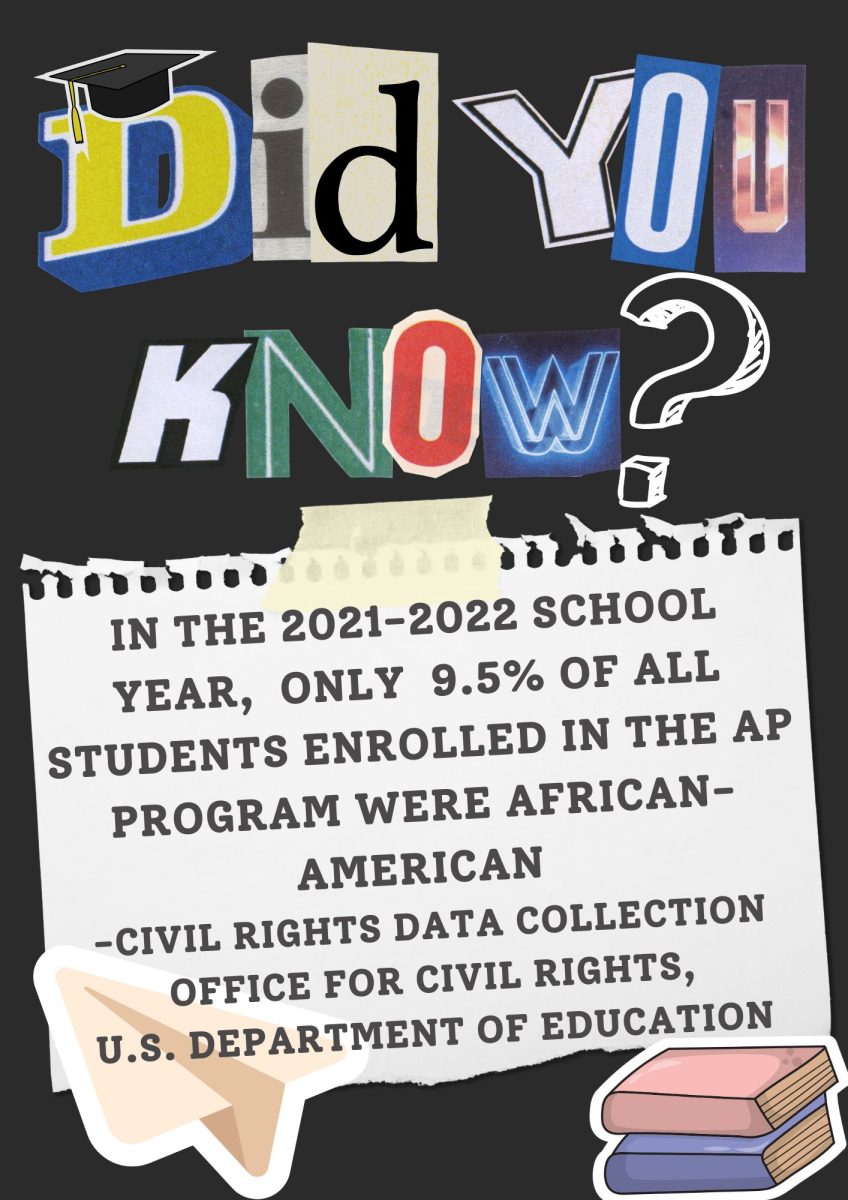Violence. Discrimination. Substance abuse.
These topics make for uncomfortable discussions, but that doesn’t make them unimportant to acknowledge. Schools, parents and libraries are trying to exclude stories with these themes by banning books and restricting reading materials.
Book bans in the US have surged in recent years as more and more parents and organizations attempt to remove certain books from public access. Upwards of three thousand total titles have been challenged across the nation in just an 8-month period of 2023. More people are trying to take books off the shelves than ever before.
That is a problem.
Restricting access to books promotes intolerance and eliminates other perspectives. This is a dangerous form of censorship that pushes different perspectives away from the reader’s eye. Most challenged books feature main characters of backgrounds historically underrepresented in popular literature. When mainstream media includes these different perspectives, it not only attracts a wider audience, but promotes acceptance and tolerance of different backgrounds and experiences. Having books with characters from all walks of life encourages understanding of where those characters come from and expands readers’ worldviews to include those experiences. Keeping those perspectives from the mainstream spotlight ensures that readers are exposed only to a single-faceted worldview. We need to have the chance to see the full picture, no matter how hard it is to look at sometimes, and censorship buries that opportunity.
If we allow authors’ works to be taken off shelves based on the widespread opinion of the time, we risk the caprices of popular society limiting our exposure to differing viewpoints, further inhibiting our ability to see and understand the contrasting sides of a story. Even if a book deals with subject material that’s considered offensive, pulling that side of the story from public access, no matter how controversial it is, is censorship and dangerous.
Being exposed to different sides of a story fosters respect for others’ opinions and viewpoints. This is especially relevant in today’s polarized political atmosphere, where simple debates devolve into mudslinging on both sides instead of rational discourse. Even if you fundamentally disagree with an idea, it’s still a good idea to be knowledgeable about it to participate in logical discussions instead of tenaciously clinging onto the same set of beliefs and not acknowledging the existence of different ideas. Banning books doesn’t allow for well-reasoned thoughts about controversial ideas. Instead, those ideas are removed from shelves and ignored. That’s a recipe for one-sided thinking and can even lead to confirmation bias, since the prevalent ideology of the time won’t have anything available to the public to provide an alternate way of thinking.
Allowing the perspectives of those different from us can be uncomfortable and even frightening at times. But the point of reading is not to agree with everything you come across. It’s to be introduced to unfamiliar, new ideas in order to form your own opinions about a topic. Just because I read “Fahrenheit 451” doesn’t necessarily mean I believe in burning books and criminalizing reading. In fact, the book has a deeper meaning that warns against adopting technology too quickly and consuming goods rather than ideas. Even though a book is controversial it still has valuable takeaways and messages.
The only real effect of removing a book from public access is to simultaneously remove it from having opinions made about it. It is to remove a fresh outlook from the mind of society and diminish the diversity of thought, which is the primary purpose of writing and literature.
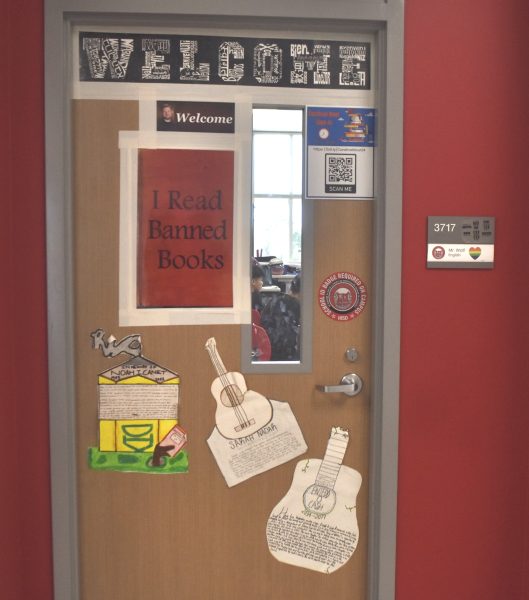
Despite some dismissing book bans as irrelevant and a faraway problem, it’s closer than one might expect. AP Language and creative writing teacher Jennifer Blessington has been the victim of book bans. Her novel “The Truth About Alice,” penned under the name Jennifer Mathieu, deals with slut-shaming among teenagers as well as the isolation that can come with high school years. It’s been removed from libraries in Florida and Utah, facing multiple attempted bans elsewhere, including Texas. Blessington strongly opposes the practice of banning books, believing it to be both ineffective and to have destructive effects.
“I am a big believer that as humans, we need to be able to think critically about texts that we may or may not agree with,” Blessington said. “And whenever we start to ban or shut down conversation, we become more polarized, more ignorant [and] more fearful of each other. And I don’t think that that’s a way for a society to evolve.”
In addition to having a detrimental effect on society and our interactions with each other, removing books from public access, while also having lasting repercussions, doesn’t produce the desired effect of eradicating an idea or topic from a target audience. Banning books and explicitly placing certain topics out of reach inevitably makes people more curious about it. And in our newfound digital age, physical books aren’t the only way to find information. Having a child have the option to read a book that has gone through extensive edits to be published and distributed to a school library might be better than having that child stumble on the same topic on the internet discussed by less educated or experienced people. While the advent of the internet has made information more widely accessible, books are still culturally influential and one of the most reliable sources of expert information, and restricting access to them has more ill effects than benefits. Banning books simply isn’t an effective way anymore to stem the flow of ideas and information to a group of people. If this practice generally produces negative effects and doesn’t even work, why are numbers of book challenges rising not just in Texas, but across the nation?
Librarian Kaitlyn Carpenter has noticed a concerning uptick in book challenges at the library in recent years.
Carpenter said the purpose of a librarian is to “make sure that our collections are diverse and reflect the students that we represent and serve,” and that there is a difference between a parent singling out a book in a library or English curriculum for their child to avoid, and that parent trying to remove a book from the rest of the student body’s access.
While not every book is appropriate to a school library and not every book should be read by every student or child, parents should instead limit their reading restrictions to their child and not extend that removal of subject material to every student.
It’s normal for a parent to be concerned about a book their child is reading in class or might check out of the library, and they’re perfectly within their rights to let a faculty member know that they don’t want their child to read that specific book. But ensuring that the other members of a class or school also have their access to that book taken away is a step too far. When a minority of parents campaign to have books removed from library shelves, they aren’t just affecting their children. The rest of the school suffers from the lack of those books that students might have read, enjoyed and learned from if the books had remained on the shelves.
Whether a book is challenged in a classroom, library, school district or even nationwide, there is no excuse for eliminating voices from the collective story told by books.
Banning books is not just about the opinions of the here and now. What is acceptable today may not be acceptable tomorrow. So let things be read. Let things be written. Let the public decide what books to pick up and which to leave on the shelves.

